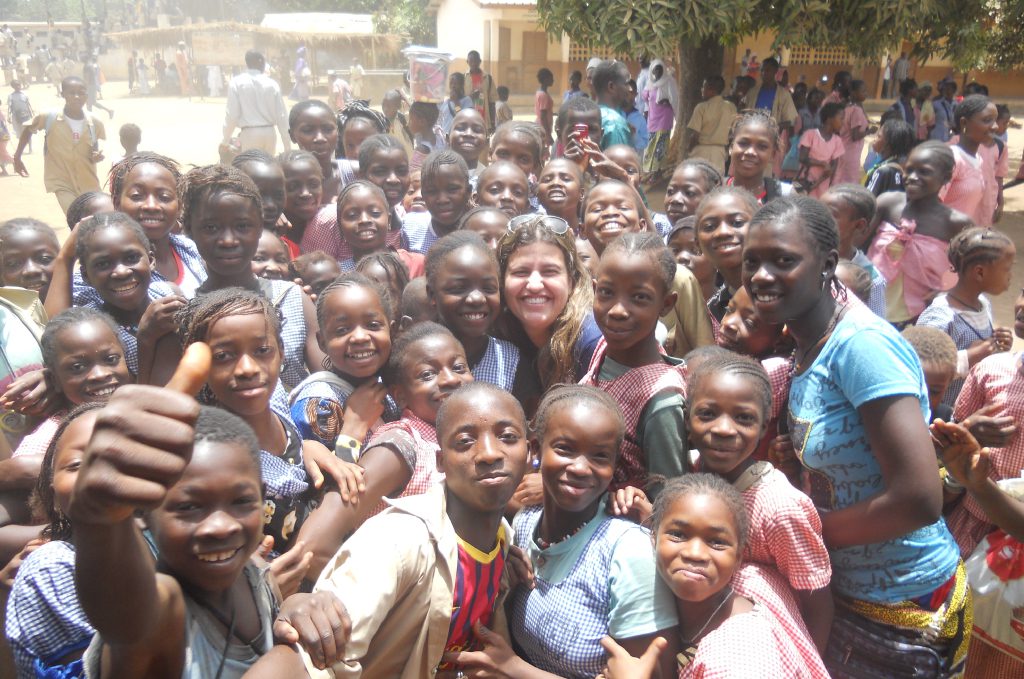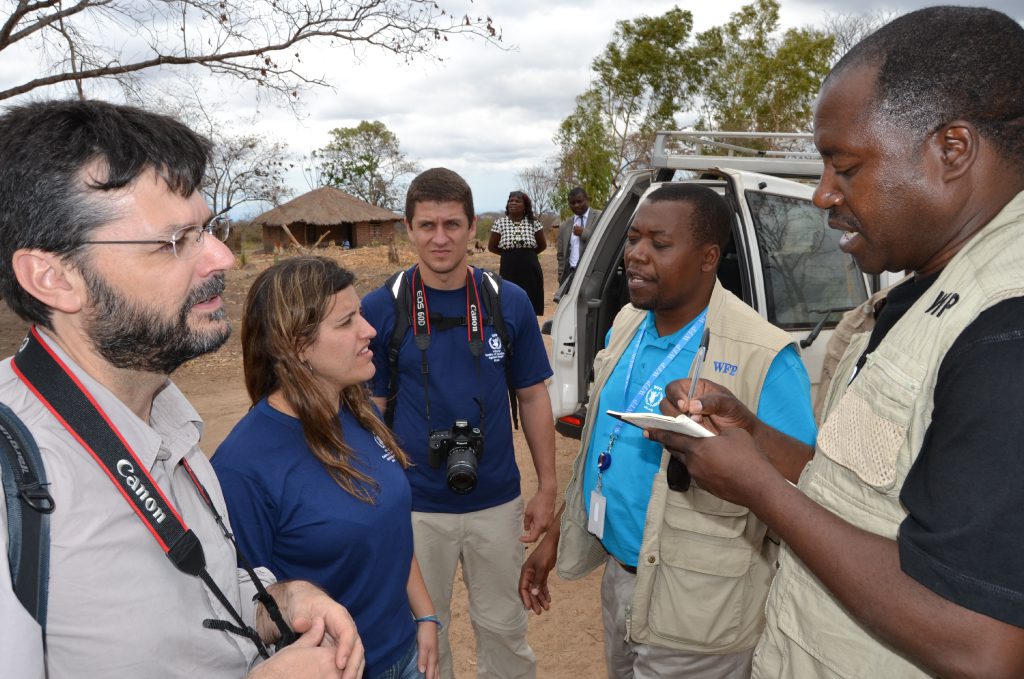
“What attracted me was the innovative character of the WFP Centre of Excellence against Hunger proposal and the possibility of taking the public school feeding policy developed in Brazil to the global level.”
With this vision, Christiani Buani started working at the WFP Centre of Excellence in 2011, when the institution was being created as a partnership between the Brazilian government and the World Food Programme. Since then, Christiani has become the head of the Centre’s programme unit, has visited 39 countries, 27 of them in Africa, and has dedicated her skills and knowledge to help more than 30 countries build their own school feeding programmes, inspired by the Brazilian experience.
Christiani was chosen by the WFP Centre of Excellence to represent our team at the celebration of World Humanitarian Day, which honours the thousands of women and men who dedicate their lives to humanitarian work.
Education
Christiani graduated in law, political science and international relations. Her taste for studies led her to complete two master’s and doctorate degrees in international law. The choice of the research area already indicated the directions of her future professional activity: the link between emergencies and development in contexts of reconstruction of states.
Prior to working at the WFP Centre of Excellence, Christiani worked for four years at the National Fund for the Development of Education (FNDE), a public institution in Brazil responsible for the country’s school feeding programme. Working in the agency’s international liaison office, Christiani had the opportunity to participate in the design of the innovative Brazilian school feeding law, to provide training for managers and other actors in the school feeding programme, and to contribute to its monitoring.
“The monitoring activities provided me with the opportunity to see first-hand the programme’s day-to-day routines and the contact with the people who carry out the programme, both at the central management level and at the implementation level,” says Christiani.

Challenge
It was also at the FNDE that Christiani received the first delegations from developing countries interested in learning about the Brazilian school feeding approach. From that experience to facing the challenge of setting up the WFP Centre of Excellence against Hunger from scratch was just a step forward.
The work in the United Nations always attracted Christiani, for the possibility of having contact with other realities besides Brazil’s. “I had already seen countries benefiting from the contact with Brazil and its National School Feeding Programme and realized that the partnership with the World Food Program could help transform many countries through a Brazilian cooperation initiative.”
The idea was very promising, but putting it into practice was not easy. “We had no legal entity, bank account, office, work plan. We needed to work with the Brazilian government and the WFP to show that our idea could generate good results. Fortunately, we had the support of key people in Brazil and in the WFP to concretize the innovation we were proposing,” she says.
Christiani points out as a challenge the fact that the WFP Centre of Excellence was created with a great demand already in place. This demand needed to be met quickly despite the lack of structure. “To this day it is complex to explain what we do, in all its dimensions. There was a lot of discussions about South-South cooperation when the WFP Centre was created, but we had no concrete examples to inspire our work. Our creativity and adaptability have been pushed all the time,” says Christiani.
“In addition, we had a great chance to innovate partnership models and we wanted to make it work and demonstrate the potential of the initiative. We had to build and maintain the confidence of governments, which became our main counterparts, and for that we needed to deliver what we promised, even in unfavourable scenarios. ”
Achievements
The results of the cooperation and technical assistance work carried out by the WFP Centre of Excellence are not immediate – and not always easily spotted. “During the first few years, we planted the seed of the transformation we wanted to promote. When we started to see the first results, it was incredible,” reveals Christiani.
“The achievements of each country have motivated us to go on, like seeing in Rwanda the impact of the partnership with Brazil, or seeing that from 2011 to 2015 Senegal has created an institutional structure to boost school feeding, or seeing Zimbabwe create a school meals after visiting Brazil. Benin, Togo, Kenya, Côte d’Ivoire, Ghana, Laos, Bangladesh – there are so many examples of countries overcoming their obstacles that it is difficult to list just a few. The results cover a variety of dimensions, and this is one of the benefits of investing in capacity building,” she explains.
The highlight of Christiani’s seven years of work, however, was the African Union’s 2016 decision to adopt school feeding as a continental strategy to promote sustainable development. “The African Union is the voice of Africa, and countries rely on that voice,” explains Christiani. “The WFP Centre of Excellence, along with highly engaged colleagues from the WFP Africa Office and Regional Office for West Africa, helped African Union heads of state to realize the need to invest in school feeding to develop the full potential of Africa,” she adds.
“When I started working with school meals, I felt that everything I had studied made sense, because it is a public policy that really has an impact on people’s lives, and I saw the effects that the Brazilian programme has on families, communities, smallholder farmers. That is why I believe it is so important for countries to come to Brazil and to see closely how the Brazilian programme is planned and executed and what the results are. It is an inspiration with enormous potential, which motivates countries to promote wider transformations.”




